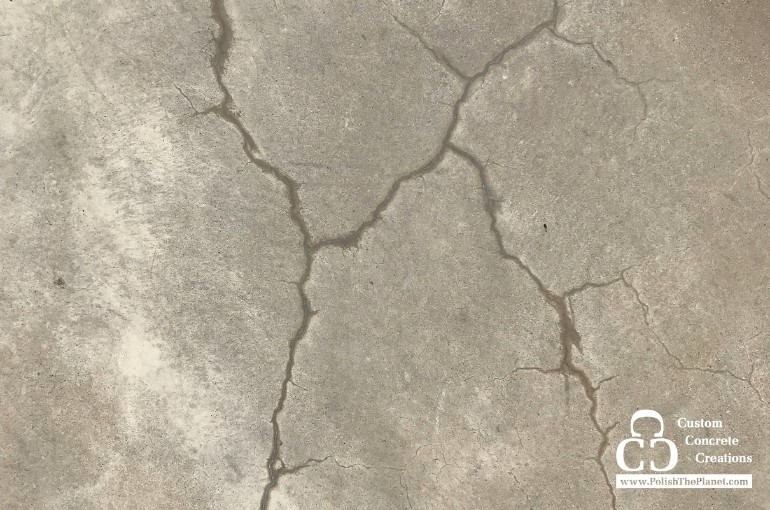
Concrete flooring is one of the most durable flooring materials out there. That is why many commercial buildings like retail stores, restaurants, apartment complexes and warehouses choose concrete as their flooring solution! When properly maintained and taken care of, your concrete floors can last for more than 20 years!
With that being said, nothing in our world lasts forever. Even if you are maintaining your floors, there are slight chances for your concrete to crack. But how does this happen? What makes concrete crack? Well luckily, we have the answers!
At Custom Concrete Creations, our polished concrete specialists have many years of experience installing and maintaining concrete floors. In this post, we discuss the main reasons that causes your concrete floors to crack!
Too much water
The strength of concrete depends on the amount of water that is poured into the mix - the more water that is added, the less durable the concrete is going to be. It can be easy for some to over pour, especially during residential and DIY projects. The water makes the concrete easier to pour, however, it can also lead to excess shrinkage.
Shrinkage and cracking occurs when the water from the mix evaporates and concrete begins to harden. The more water, the more evaporation there will be, ultimately leading to cracking. This is why you should always hire a polished concrete specialist to install concrete flooring in your commercial buildings. Although doing it yourself may seem like the cheaper option, you could end up paying more in repair costs later down the road.
Rapid drying
Rapid, premature drying is another culprit of concrete cracking. There are two common kinds of cracks that happen, crazing and crusting. Crazing cracks are fine surface cracks that resemble shattered glass and occur when the surface of the concrete dries too quickly. Crusting cracks happens when the top layer of concrete dries quicker than the layers underneath. This is commonly caused during the stamping process.
Lack of control joints
Control joints are planned cracks that allow contractors to be active in deciding where concrete cracking may occur. When placed strategically, there is less of a chance that cracking will occur randomly. Instead, they should happen in straight lines along the control joints.
Improper strength
Different projects require varying strengths of concrete. For example, warehouse floors that will have to withstand the weight of forklifts and heavy machinery will require a more durable pour while flooring in homes and offices might not require that type of strength. It is important for contractors to analyze and verify which strength is appropriate for each project before they pour.
Although there are a number of factors that could cause cracking within your concrete, it usually is due to the installation process. If you are planning on installing concrete floors in your commercial space, be sure that you hire polished concrete specialists to ensure your floors stay in great condition for many years to come!
At Custom Concrete Creations, we offer concrete flooring installation and repair services! If your concrete flooring ever gets damaged, our team is more than happy to come out and get your issue fixed! Give us a call today with any questions about our concrete services!
